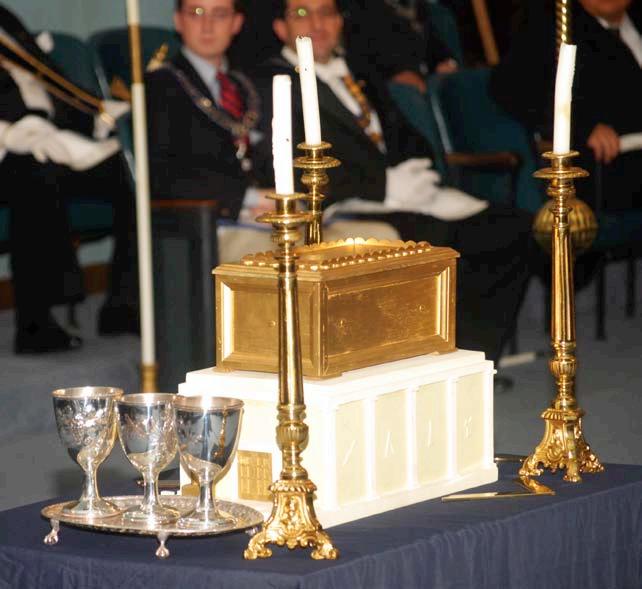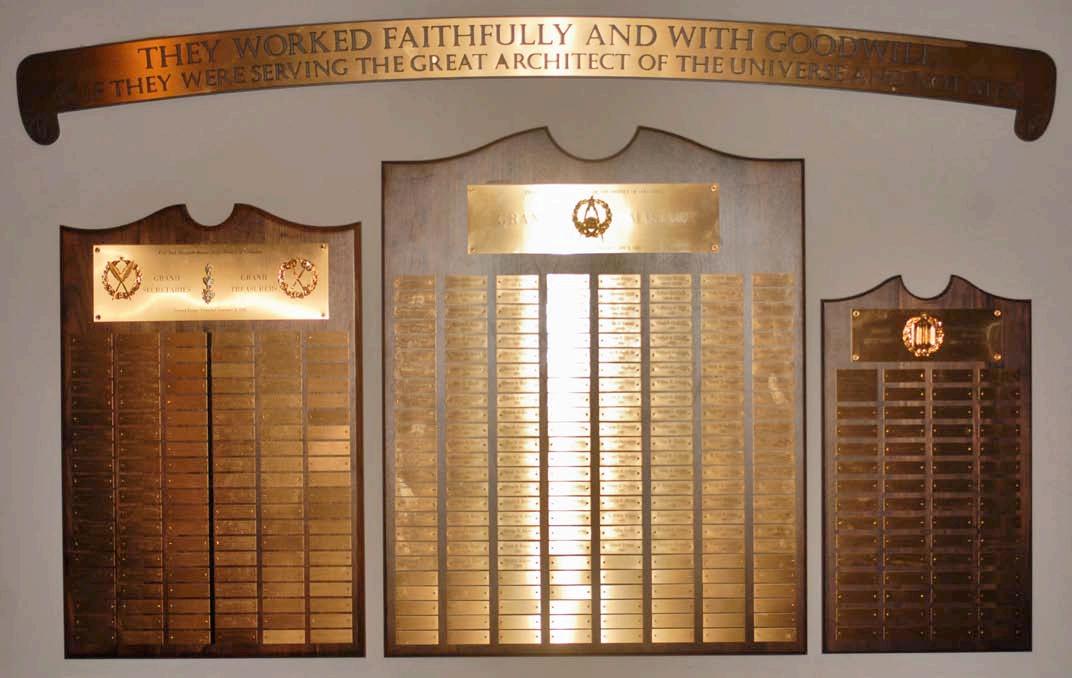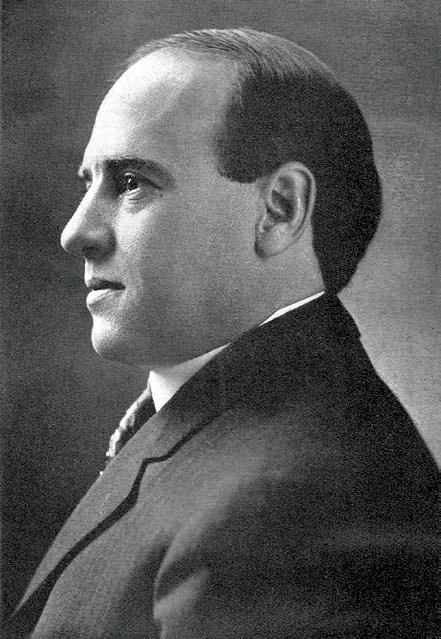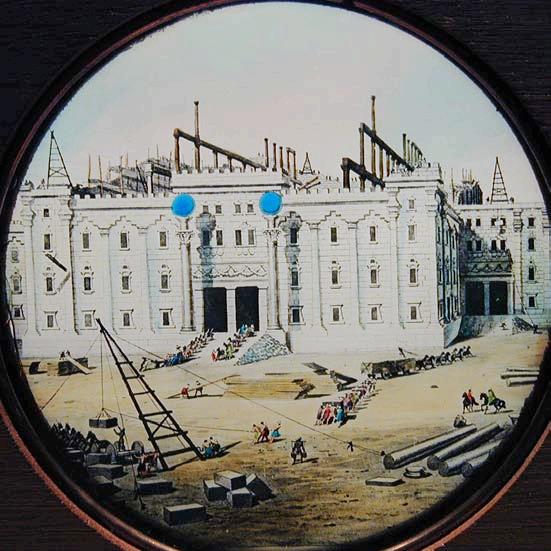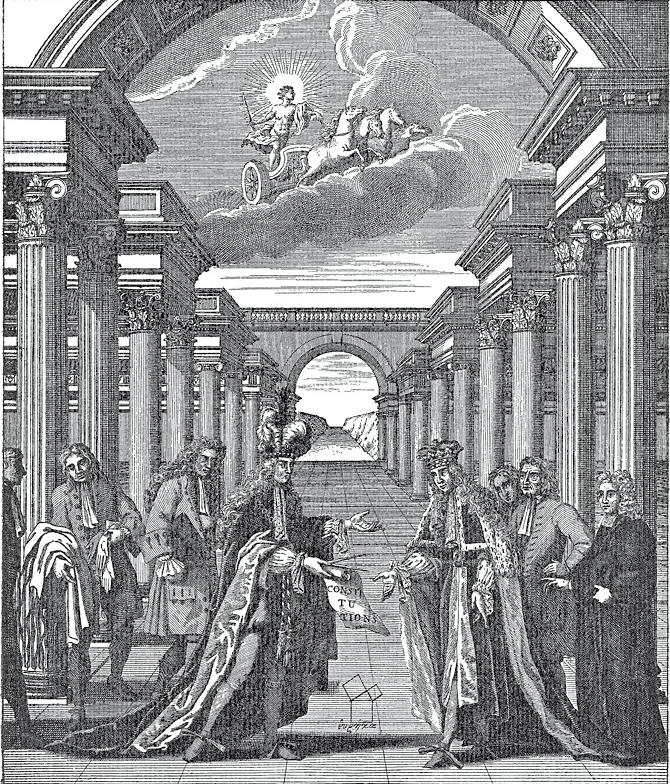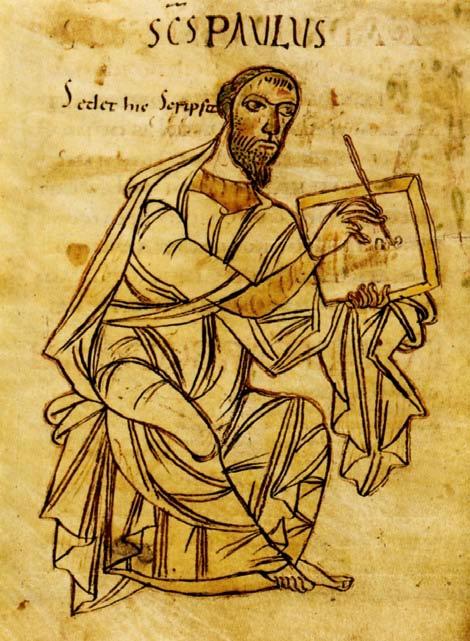
6 minute read
Changing Moral Laws
Changing
Moral Laws
At the time of his installation every Master-elect signifies his agreement with a specific number of charges and regulations that pertain to the duties of the exalted office that he is about to enter. At that time he, like all Masters before him, agrees to be a good man and true, and in so doing, to obey the moral law, a nebulous statute which is as broad as time, and one that has provided the foundation of Masonry’s work in all ages. By so doing he is caused to contemplate his role, and that of his lodge and his brethren, in a world-wide secular society wherein challenges to the norms of reason are now commonplace.
Life is not now, nor has it ever been, perfect, and in addressing that truth, in a constructive fashion, for the purpose of strengthening our institutional will to overcome evil by good, it seems appropriate to critically examine our concepts of moral law and to determine, if possible, how and in what fashion the Craft may best serve humanity. To that end it may be fruitful to look at the philosophical foundations of Masonic morality, to review the demands that the fraternity makes upon its adherents, and finally, through a review of current developments in society universal, to assess how Masonic morality impacts on society as a whole. Such an appreciation, in a time of rapid and unbridled change, is clearly in the interest of the Craft.
Let us begin by defining morality, a nebulous term at best. Many years ago J.E. Morgan, wrote in the Journal of the National Education Association that the concept of morality refers to the “standards of conduct set by people of influence or authority.” Morgan also notes that “superficially, moral patterns differ somewhat from country to country and from one period to another, but fundamentally they rest on basic human needs,” which he suggests are four in number — honesty, industry, self reliance, and cooperation. In another source, the Master’s Lectures as delivered in Evans Lodge No. 524 in Illinois, it is written that the word morality is derived from a Latin word meaning “custom.” This source goes on to state that the
Stewart W. Miner, PGM Grand Secretary Emeritus
word was probably used by the Romans to denote the concept of “living according to custom.” To this those of the Christian religion added a new concept whereby the term was shaped to denote the “life of the righteous,” a concept that is advanced in this source as follows:
“It (righteousness) is living the right way, doing the right things, thinking the right thoughts. But what is right? That question may be answered in two ways: it might be said that the right way is that which gives us the fullest, completest [sic] life, for it is the purpose of morality to give life and give it more abundantly; or it might be said that right is conformity to the law of being. As the scientist seeks to learn the laws of nature and to conform to them, so does a righteous man seek to discover the laws of his own nature in order to conform to them; he obeys the laws of the body by living cleanly and simply, he obeys the laws of the intellect by thinking facts without prejudice or haste, and he obeys the laws of the heart by loving only that which he finds to be good and true.” These commentaries on righteousness, while undeniably useful are not entirely sufficient, however, to indicate how the Craft has traditionally defined its concepts of morality. Furthermore, they do not necessarily infer how those concepts are implemented by either the Lodge or the individual Mason. Masonry, at least in the Grand Lodge era, has been very circumspect in discussing its conception of “the moral Law,” apparently preferring ambiguity to specificity. On this score we are forced to be content with generalities such as those that are exemplified by the general charges of a Freemason. If the official documents of modern Masonry fail to publicly position the Craft in definitive terms, a number of Masonic scholars have filled the vacuum thus created. Albert Mackey in his work on jurisprudence, for example, states that the moral law “denotes the rule of good and evil, of right and wrong, revealed by the Creator and inscribed on man’s conscience, even at his creation, and consequently (is) binding by divine authority.”
Henry Wilson Coil adds to the discussion. In his the shaping of moral law in the public sphere to be a encyclopedia he notes that the moral position of the responsibility of Freemasonry and Freemasons. Craft was clearly indicated in its oldest document, the Regius Poem, which prescribed that “a Mason should be steadfast, trusty and true, must accept no thief for an apprentice lest it turn the Craft to shame; must not supplant another Master but be a brother to him; must be fair and free and do nothing that would shame the Craft. The Craftsman was charged to love God and Holy Church and his Master and Fellow’s; work truly; be not false to the Craft; stand well in God’s law; respect the chastity of his Master’s wife and his fellow’s concubine; be a true mediator; act fairly to all; pay his debts; and swear to be no thief.” Having established the foundations of Masonic morality, at least in empirical terms, it seems appropriate to consider how the fraternity and its members have responded — in the Lodge community and in the world at large. For the most part the response within Masonry — personal and collective — has been good. The majority of Masons try diligently to uphold the obligations they have taken, the charges they have accepted, and the lessons they have learned, ritualistic and otherwise. There are exceptions, of course, and it would be foolhardy to claim otherwise; But Masonry provides “A Mason should be steadfast, trusty and true, must accept no Many others, including Albert Pike, have thief for an apprenthe mechanism and Masons the will to written to this subject. In the opening tice lest it turn the keep viable the most cherished customs pages of his Morals and practices of the and Dogma, Pike lists what he terms are the Ten Commandments of the Craft, and while they vary in detail from the Commandments as given to Moses, they do formulate a good working plan for life. After detailing the so-called Masonic Decalogue, which is directed to the relationship of a Mason to his God and his brother, Pike then states that “it is also the duty of Masonry to assist in elevating the moral and intellectual level of society; in coining knowledge, bringing ideas into circulation, and causing the mind of youth to grow; and in putting, gradually, by the teachings of axioms and the promulgation of positive laws, the human race in harmony with its destinies.” This proclamation, perhaps more than any other that I have read, declares Craft. The fraternity and its members have been far less successful in the non-Masonic community, however, and this is a cause of real regret. Masonry has sent thousands upon thousands of good men into the public arena, and it is quite probable that their Masonic experiences favorably influenced their performances; but it remains difficult, perhaps even impossible, to demonstrate that any given modification of social norm is attributable to the philosophy of Masonry alone. As a matter of fact it might be a much simpler task to prove that the influence of society on Masons substantially exceeds the influence of Masons on society. If that be so, members of the Craft should ask themselves, why? Craft to shame; must not supplant another Master but be a brother to him; must be fair and free and do nothing that would shame the Craft.” – Henry Wilson Coil


